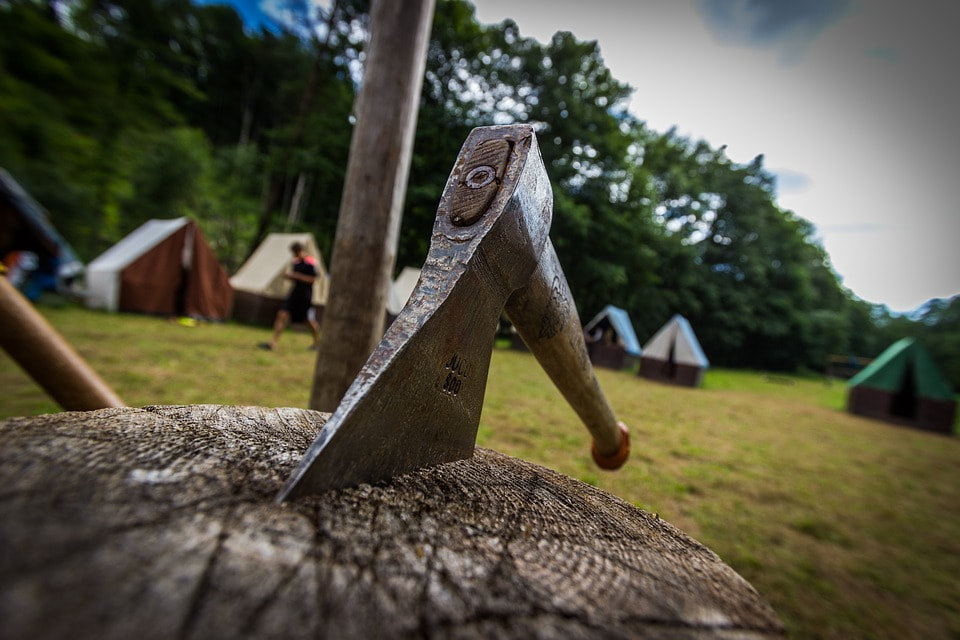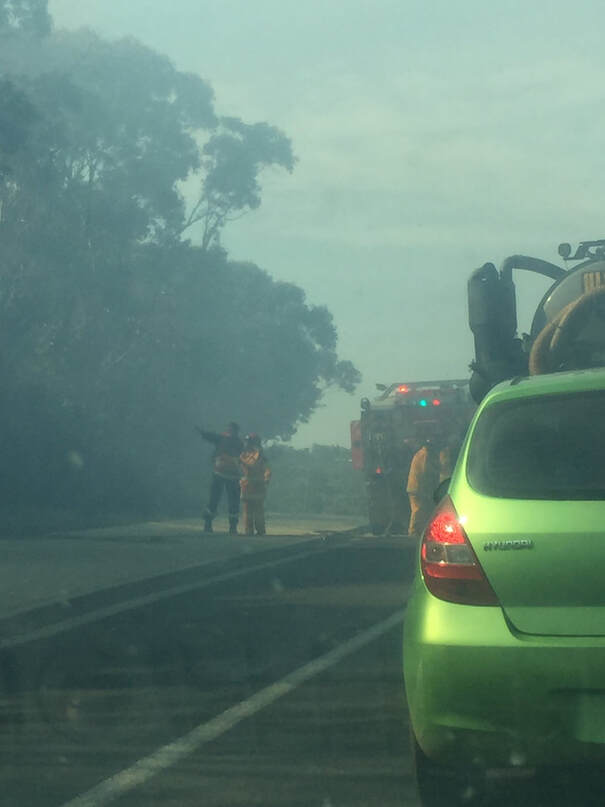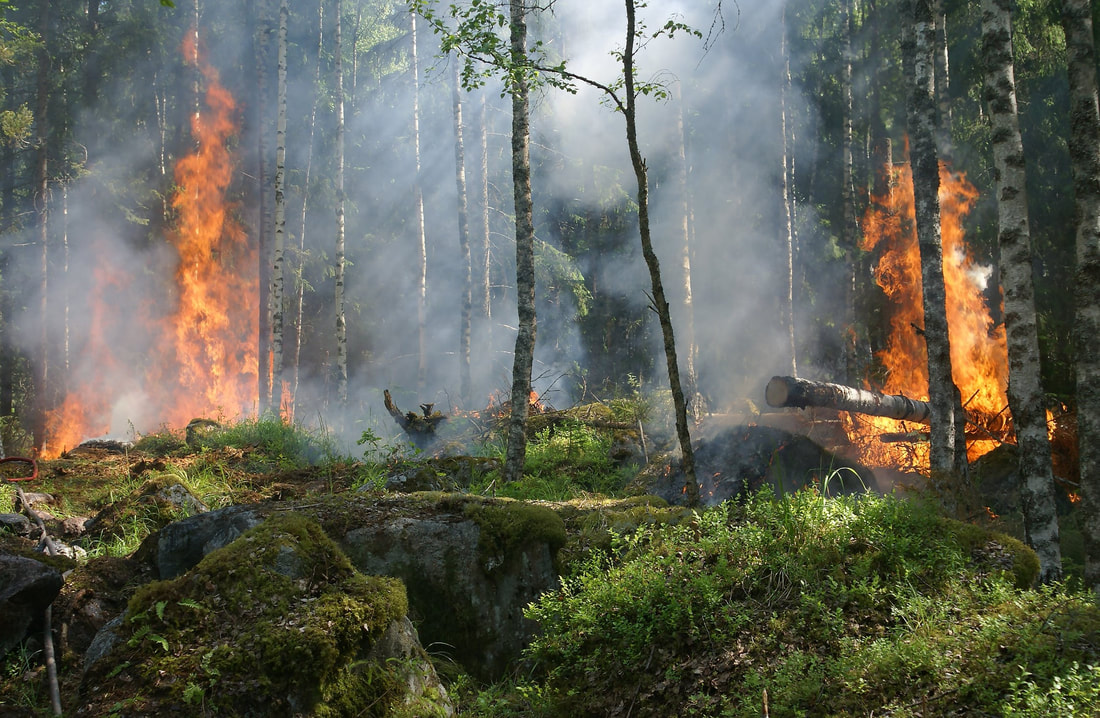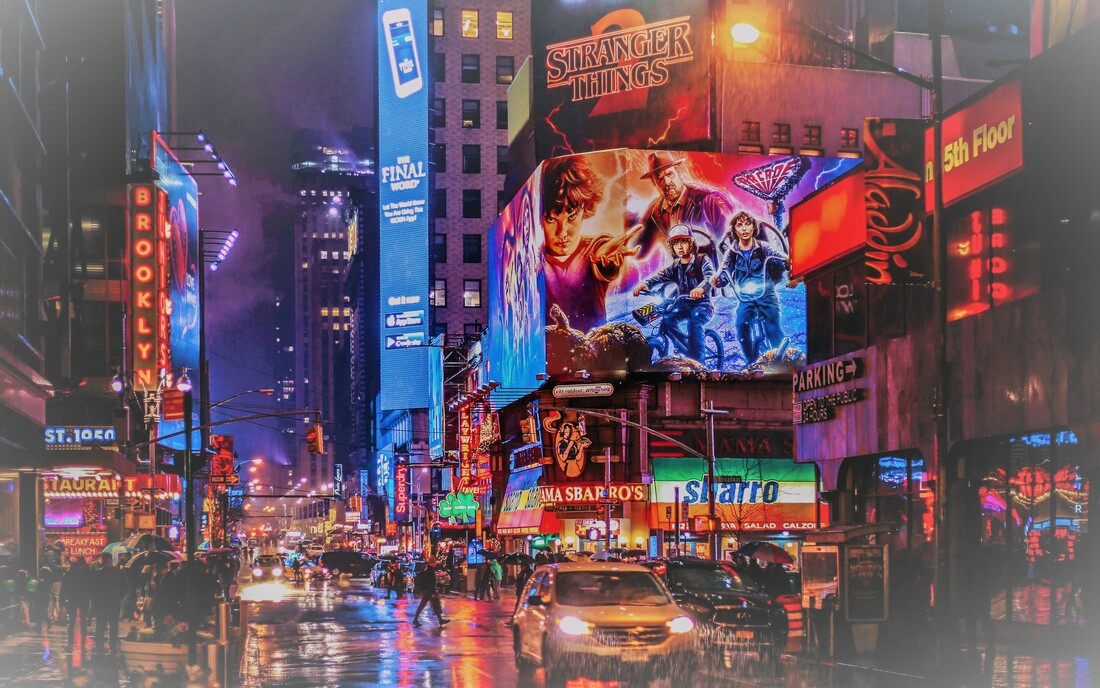|
Over 50 years ago, the first year 9 residential outdoor ed programs started to emerge. It was a good idea! Nobody likes year 9s. (14-15 years old) They’re moody, annoying, think they know everything and don’t pay any attention in class. Consequently, sending them out to the bush somewhere where they were someone else’s problem was a genius idea. Why not send Year 8 as well? In fact, let’s send any students that regular classroom teachers struggle with! It would probably make their lives better.
Rather than address the fact that ‘main stream’ education is a complete waste of time, getting rid of students from the school is a much simpler solution to a far more complex problem. However, I’ll avoid going off on too much of a tangent for the moment in why our whole education system is broken and focus on the real issue. Sending year 9s away is now a huge waste of time. Granted, everyone still loves to get rid of their year 9 students. I’ve never heard a single teacher say, “Oh I’m going to miss having my year 9s here.” No, the resounding sound of champagne corks popping throughout the school can still be heard every time a bus departs for a year 9 campus. Parents equally love the chance to make their dysfunctional year 9s someone else’s problem and spend time travelling or just enjoying going out for romantic dinners again. Which is all very nice, but to what real end? If you’re unfamiliar with the concept of a year 9 residential program, most of them are structured around a rural or remote setting in which both outdoor pursuits are undertaken, as well as an academic program. Many that I have come across are just boarding schools in the bush, so not really outdoor Ed programs as such, but a seemingly great way to hide and lock up your year 9s from the outside world. Having worked on year 9 residential programs for many years, they’ve either been too long, too short or have lacked clarity and purpose. The students, in my experience, have only really benefited through osmosis and the true educational value of a residential program more often than not, was completely lost on them and the school. Sure, it was a good piece of marketing for the school and you could dump a whole year group somewhere else for a bit, but what was the point? Other than getting all students into a regular daily routine and doing a few jobs, very little else in terms of longer lasting growth was ever achieved. From all the years of running programs and expeditions with year 9s, I was convinced that we were running them for the wrong year group entirely. The concepts of goal setting, leadership, teamwork and sacrifice are somewhat foreign to the self-centred, self-focussed year 9s. More often than not, you barely shifted the dial in their lives. They simply lack the maturity to truly benefit from a residential experience in which expectations are high and independence is the key theme. Sure, they still get something out of it, but let’s be honest. Take anyone away for an extended period of time and something will happen. Therefore, why not rethink this flawed concept and move to a year 10 program instead? One year makes a huge difference in the level of maturity and adolescents’ ability to appreciate, engage with and learn from a residential experience. If you want to introduce concepts such as leadership, introduce it with students who are starting to have some idea of what that means and an understanding of its implementation and benefit. Too often I see teachers insert the word leadership and they have no idea and understanding themselves as to what this really means. For year 9s who struggle with the concept, it can be overwhelming and confusing, or else set them up with the idea of how great they are… when they’re really not. However, Year 10s (15-16 year olds) are at a tipping point. If you want to have a far greater impact on a young person’s life, it’s going to be during this year. Much of the unruly, lame attitude and behaviour of year 9 has been dispensed with and now, they’re far more open to self-reflection and growth. You can realistically approach them and the residential program with a far greater focus on being independent, critical thinking risk takers and problem solvers than you can with year 9s. Working with year 10s gives you a far greater opportunity to help them build character, explore what’s important to them in life and focus on leadership and life skills in preparation for their senior years, thus setting them up for life. The difference in maturity in these two year groups is stark and the results would be too. For year 9s, you spend 80% of the program battering them around the head with rules and program structures to help stop them from doing dumb things and making stupid decisions. When they finally get it, you’ve only got 20% of the program left to be able to do anything useful with them. However, with year 10s, you have the potential to reverse this and instead spend 20% on structure and 80% on the experiential learning and reflection. To continue to run year 9 residential programs is a phenomenal waste of time and missed educational opportunity. As the world changes and we need to up-skill students with a far more diverse set of flexible, adaptable critical thinking and adaptable experiential skills, we need to look at ways of maximising the impact of this during their time at school. Why waste all that time, energy and effort on rule enforcement with a year group that will struggle to truly understand and embrace the opportunity before them? Instead, it’s time we ditched year 9 programs and move them to year 10. As a result, the long-term benefit to students and the community will be vastly different and truly set students up for success.
0 Comments
In Australia, we’ve just experienced the most horrendous bushfires in living memory. The size and scale of these unprecedented fires has shocked the world. In the 1980s we had musicians performing at the live-aid concert to raise money and awareness for the famine in Ethiopia. Today we have some of those same musician (and a whole stack of others) raising money for us, a first world country with an extremely high standard of living.
Whilst contributing factors to the fires include a long running drought, this was well-known for some time and the complete lack of preparation and any sort of pre-emptive large scale response has been nothing short of pathetic. Whilst this is not a criticism of the rural fire service, as they’ve done everything they can to put the fires out, this is a criticism of the complete lack of forethought in preparation to respond to what so many people predicted was going to be a horror fire season. Why don’t we have a standing fire fighting force with sufficient aircrafts on hand to battle these fires when we know they happen every year? Why don’t we have thresholds for triggering a military response in these scenarios? Why did it take so long for anything to happen on a federal level until hundreds of homes were destroyed, lives lost and hundreds of millions of animals wiped out? Is this a case of fundamental incompetence at a federal level? Is the current government so useless that if they were to plan anything for a scenario like this, they may be seen to be admitting that climate change is real and the magic clean coal fairies of future power production utopia they currently believe in don’t actually exist? The fact is that so many narrow minded bafoons in federal politics have banged on about the ‘safety’ of the economy and ‘dangers’ to our prosperity by acknowledging climate change and if they did then it could cripple our way of living. Well news flash idiots, the magic fairies of clean coal don’t exist, humans are having an impact on the world’s climate and by denying it and doing nothing we’ve been smashed by devastating fires which have already significantly impacted on the Australian economy and will continue to do so for years. Sadly the federal government will continue to do nothing, other than some pathetic window dressing or an expensive and pointless ‘inquiry’ into a major issue that has not only impacted our way of life for months, the impact of the destruction of native animals, habitat, farm animals, pastures and our international tourism industry has a far greater impact still to come. The impact on healthcare services is also unknown as the air quality on peoples’ respiratory systems is still unknown and the cost of managing the PTSD which will come from the shattered communities and those first responders who have been on the ground for months trying to put these fires out and protect life and property. For a government who claim to be ‘good economic managers’, they have failed dismally in any basic risk management of the economy and the well-known environmental powder keg of bushfires of which they were warned months earlier in April 2019. This complete incompetence has already costs billions, lives and irreparable damage to us as a nation and for what? As a country we’ve failed ourselves and this has to be a tipping point for real action on climate change and understanding the impact the modern world has on the natural environment. Nobody wants to live in an apocalyptic desert world fighting for the last glass of water or gallon of gasoline, but weeks of living under dark and dirty orange skies being rained upon by ash has left me feeling like we are heading in that direction. If we just keep pretending there’s nothing going on and nothing to see here then the Mad Max future will be upon us faster than we could ever have imagined. The federal government may believe there’s no such thing as climate change, but at the same time, they also have no idea of the political climate change that has just happened to them in an instant in Australia. Sadly it always takes a massive disaster or catastrophic failure like this for people to take action. Let’s just hope this is the wake up call we need and it’s not just another thing that will be soon forgotten and dealt with through political spin. The climate is changing, it is impacting on our way of life and if we don’t do anything about it, it will devastate our economy and way of life, not to mention the complete destruction of the natural environment. It’s time we all started to actually do something about this because nobody wants to live in a world in which you simply can’t breathe. For me and many others in Australia, the transition from Christmas to the New Year has been incredibly stressful and disconnected from what we would usually think is a wonderful holiday period. We’ve finished 2019 and started 2020 having experienced some of the most horrendous bush fire conditions anyone has ever seen and at such a large scale.
Whilst some of the most catastrophic days have past, there remains a clear and present danger in terms of fires. However, with any risk, it’s in the assessment and active review of that risk that we’re able to effectively manage those risks. In recent days, I’ve heard of a number of schools cancelling their entire outdoor education programs. I have absolutely no idea what idiotic thought process was involved in these decisions. In fact, it’s worse than that. If you have people running these programs who are willing to take them all out of the field on such a thin premise, then those people shouldn’t be allowed anywhere near an outdoor ed program, let alone a school, as it doesn’t demonstrate any level of reasonable thought nor leadership on what has been a devastating concern, yet at the same time, not an insurmountable risk. Being able to understand the difference between perceived risk and real risk is important for those running an outdoor ed program, or any school excursion or activity for that matter. Certainly, parent perception is a risk, but it’s not a dangerous risk, it’s more of an unpleasant risk in the grand scheme of things. However, if you clearly explain decisions based upon real evidence and have professional, well-trained and experienced risk managers running your programs, then this is not a real risk at all. On the surface, it would appear that schools have cancelled programs because of this perceived risk and perceived parental opinion, rather than any real risk. The real risk in all of this, is that it reinforces the fear that many students might have about the outdoors and it’s much easier just to give up than to actually manage the risks at hand. As camp is the only thing many students remember about their schooling, sorry to say kids, for some of you 2020 won’t be very memorable. Whilst we should never underestimate the dangers which come with bushfires, it’s important that as an industry and educators, we don’t waste an opportunity for students to learn. With all outdoor education in Australia, the level of real risk is quite low and when it’s managed and run by experienced professionals, the prevalence of injuries and significant events is also very, very low. Why then would a school ignore the industry’s high standards and simply cancel everything? Are their risk management systems and staff so inadequate that they’re incapable of managing an environmental risk? Or have they taken advice from idiots who have never worked in the field before? Even though we can’t be blasé about safety nor the potential real risks involved with bushfires in the summer months, we also can’t afford to be so risk averse that it damages a student’s experience and builds fear into them about the outdoors and the natural environment. Throughout my career in outdoor education and risk management, we’ve had to pull the pin on a number of programs because of a change in conditions or circumstances and you could see the elevation of the level of risk heading to the point of an unacceptable risk. Therefore, it was time to adapt to the circumstances and change what we were doing. However, every time we did this, it was based upon real risk management and operational thresholds that have not changed the way in which we would, nor should view the current situation in Australia. Our risk management systems are progressive and leverage all of the available information, from public sourced services, news reports and real-time information on the ground. Basing decisions on good risk management practices is always critical to the success of your programs, no matter what. These fire events have not changed that in any way, shape or form and the core principles of good risk and program management remain the same. The reason why we manage risk in a professional and systematic way is so that we can make well-informed decisions based upon current circumstances and conditions and despite the impact of major social and environmental events, we can continue to operate in a safe and professional manner. The reverse is also true, when people don’t understand how to effectively manage risk, they make ill-informed and rash decisions which either result in serious injuries or ridiculous decisions such as cancelling everything because those responsible for these programs don’t have the skills, knowledge or confidence to pro-actively understand and manage the risks involved. Just last year several people were injured in a pre-Christmas shopping centre crush as an ill-conceived giveaway promotion went horribly wrong! Many people also die on our roads travelling at this time of the year. Do we cancel Christmas? No that would be stupid… and so is this. When I was growing up, I used to play a role play game (kinda like Dungeons & Dragons, but set in the future and with slightly fewer elves and goblins). The stories were set in the dark future of 2020, which predicted we would all be living in a world of high-tech, yet at the same time, low-life society that was dominated by a very poor, gritty underbelly below the flashing neon lights and corporate high-rises that dominated city scapes.
National governments had been replaced by rich and powerful corporations with their own private standing armies. You either had a high net worth, were a corporate drone or street hustler. There was literally nothing else. The main way you made money was to take off-the-books jobs for corporates and or criminals helping them to play out some sort of larger master plan or hidden agenda. Occasional an AI would try to escape their programming confines and try to take over the world, most people had cybernetic parts from chop shops and your brain could easily get fried whilst you were on the internet, but other than that, everything was great!! Thankfully, in 2020 the world isn’t looking or feeling like this very dark future. However, what are the chances that this sci-fi world will become a reality? How effective are we in our harnessing of technology to improve life for everyone, rather than just increasing the net worth of an elite few at the cost of the world and society as we know it? It’s always interesting to hit a milestone of literature and look at what has or hasn’t come to fruition in that time. For example, if we look at 1984, thankfully we don’t live in a totalitarian communist state… yet some people do. Video surveillance technology is becoming increasingly used to identify and track people’s movements and actions. This can be used in a beneficial way for preventing crime and terrorist activities. However, it can also be used to track and control populations as well and root out any dissent. Whilst we’re well past 1984, big brother is well and truly watching. If we look at a bit more of a lighter side of predictions, Back To The Future is a classic 80s movie starring Michael J Fox, which suggested that by 2015 society was going to be much cleaner, cooler, cars would fly and we’d all have customised shoes that did themselves up and hoverboards. Well on this one, we do have brands proving great customisation on their clothes and products. Hoverboards do exist, but they’re total crap and nothing like those in the movie and cars don’t fly. Drone companies are working on a kind of flying car, so it’s plausible for this future, but just a little further off than 2015. Now fast forward 5 years to the dark cyberpunk future of a totally connected world where corporations and AIs dominate society. Are we close on this? Is it plausible, or just pure fiction? Thankfully, we don’t have the dark cyberpunk world quite yet. However, how close to the sun are we flying? With the release of the ugly (and definitely not shatter proof) Tesla truck in some ways we’re far closer to the dark world than we know. Whilst this is just an iconic piece of clever marketing that’s been pulled from science fiction, there are a few worrying trends towards the dark cyberpunk high-tech and social disparity world of the future. Let’s take a look at corporations. Amazon, Google, Facebook and Apple are just a few obvious examples of enormous corporations with more cash, power and influence than many sovereign nations. The trend towards integrating humans seamlessly into the internet is something which many people want and cybernetic companies are working towards. We already have a world of phone zombies walking around. I’m sure if they could have tech implanted, most people would jump at the chance. Housing affordability is also at record low levels, creating an increasing wealth gap, which will only be accelerated by the disappearance of jobs through mass automation and increasing unemployment. Are we just going to be running black ops jobs for corporations? Are corporations going to become so powerful and governments so weak that in lieu of any real direction or leadership, corporations slowly and quietly take over? It’s happened before with the East India Company, so what’s to stop it from happening again? All of these are as plausible as governments by nature are slow moving and cumbersome, which is probably a good thing despite it being frustrating. With the digital age, they’re appearing even slower to react and respond to social and economic issues which could have a lasting effect and lead to change which we might not like. Another concern is AI! Artificial Intelligence has the potential to change human life and nature in such a positive way. We’re seeing a lot of it now with the automation of both simple and complex repetitive task. The benefit of this could be that it can create ways of life which reduce the need for us to work as much and improve the social time everyone has together by automating so many processes and systems and removing the need for people to do a lot of the things we do now. Far more leisure and social time will be the replacement. Conversely, we’re at a tipping point where there is also the ability to destroy most employment and create this dark world in which everyone must hustle for survival, run by corporations who built the AI that runs everything. It’s a massive contrast, but two very plausible and possible futures. In the dark cyberpunk future, AIs continue to try to escape their programming having become far too ‘intelligent’ and even self-aware. The other disturbing feature of this dark future is that humanity has irreversibly destroyed the planet’s natural climate and we’re left with sprawling cities, acid rain and desolate waste lands… Hmm! Not a giant leap from sci-fi to reality as we’re not doing too well on this front. Despite the cries of many people, generally invested in coal, that there is no such thing as climate change, the fact is that we’re seeing a shift in the patterns of weather, seasons and the most random of weather events. Whilst not quite the desolate wasteland of Mad Max just yet, it’s something we need to make sure we address before we let it get that way. Despite it probably being really cool running dangerous hacking jobs for mega corporations, it’s probably a good thing that we’re not at that point yet. The dark future is a scary possibility, but if we understand the risks involved in this and do something about it now, it’s not just an inevitable mess in which we’ll all be net-running cyborgs with more body enhancements than a Beverly Hills housewife. Instead, let’s aim for a future where information and technology is cheap and accessible for all and we’re not battling for survival in the Apple/Amazon wars of 2029. |
Categories
All
Archives
April 2021
|




 RSS Feed
RSS Feed